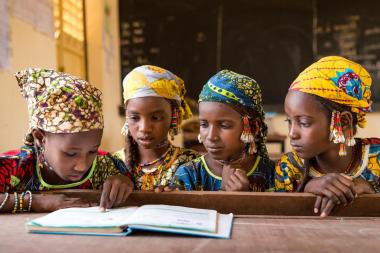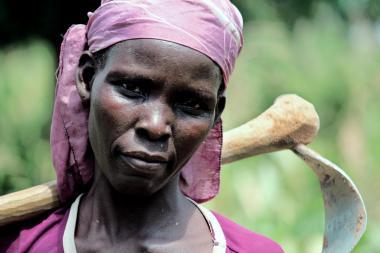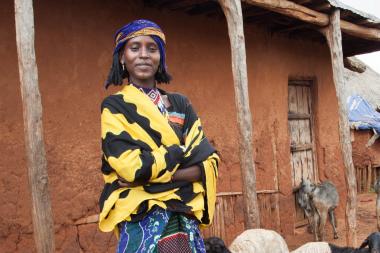Blog
‘Educating a woman is educating society’
A girls’ education advocacy initiative led by SPARC partners in the drylands of Nigeria is uniting pastoralist communities. Here we share why investing in gender equality in fragile contexts is vital.
Publisher SPARC
Patriarchy among pastoral communities is strong. Women pastoralists face the consequences of gender inequality on a daily basis. They tend to have lower access to resources and fewer opportunities, often stemming, at least in part, from poor education. A SPARC programme partner – Fulbe Development and Cultural Organization (FUDECO) – wants to reverse this by working with pastoralist groups to support girl-child advocacy and education to empower girls and ensure their futures can be on an equal footing with boys.
The Girls Education Advocacy project in the Ardo Kaku community in Adamawa State, Nigeria, began a few years ago when FUDECO noticed an absence of basic education. Most of the community are Internally Displaced People who moved to the area in 2017 after a particularly severe farmer-herder conflict that killed more than 70 people, mostly women and children.
After spending time with the Ardo Kaku community, FUDECO realised that no-one could read and write Western or Qur’anic texts. Traditionally the men and boys in Ardo Kaku rear cows, sell animals, and control resources. The only opportunities for women and girls are domestic work, such as cooking, caring for children and fetching water.
Partnering with communities to build support for girls’ education
Providing education with a focus on girls clearly held potential to uplift the whole community. But getting buy-in from the community for this focus was not easy. To engage people in the project and get their views, FUDECO organised discussions with both women and men in different age groups. Initially, some of the men were skeptical and believed that the project may be waste of time and resources since “girls will end up in the kitchen.” However, after repeated discussions about the benefits of education, they began to accept the idea.
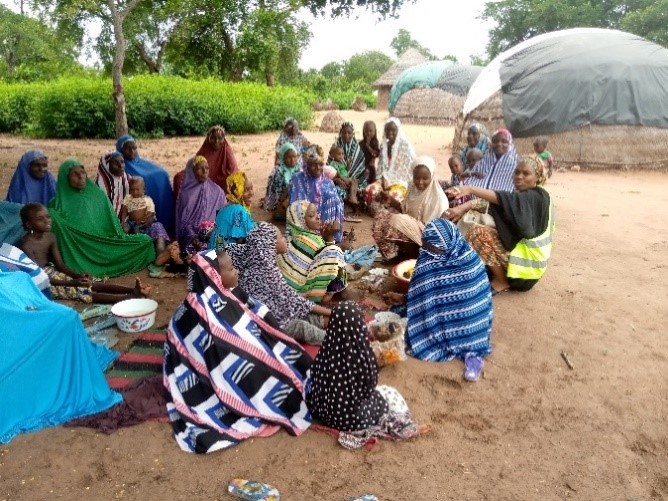
Women and girls were more welcoming of the initiative but made it clear that enrolling girls in schools would depend on the approval of the men. Ensuring the agreement of men, women, girls and boys was essential for the project to thrive. Once the whole community supported the project, FUDECO met with the relevant government authorities and traditional leaders, who also gave their approval.
This engagement with the authorities gave the project strong political and institutional support and the formal allocation of land for the school structure. The Local Education Authority (LEA) also supplied an experienced teacher from a nearby village.
Ardo Kaku Nomadic primary school grows from strength to strength
The project was officially launched in August 2021.Thirty girls between the ages of six and 18, and their mothers, attended the launch. Students were given school bags, books, pencils, pens, erasers, sharpeners, and school shoes. The LEA chairman, also a Fulani pastoralist, launched the school with some nomadic education supervisors and he named it Ardo Kaku Nomadic primary school. The chairman encouraged the community to build on the opportunity, adding that the entire community would benefit from the education of girls.
One year on, almost 200 girls attend. A recent anonymous donation means the students, who were being taught under a tree on the allocated land, will be able to study in a permanent building once construction work starts. The school also aims to recruit more teachers and hopes to give staff and pupils access to drinking water via a borehole.
Danus Kemuel Yaru, the head teacher and currently the only teacher, said the school was helping to strengthen community ties but that pupils needed better facilities. He added, “[Before the school opened], I did not know these people, so it was an opportunity for me to know them and the community. Now everywhere the children and their parents see me they greet me…The school has contributed to the community. I see knowledge sharing. Apart from the children, now even the parents greet me in English saying 'Good morning sir'.
“For this school to continue, we need two blocks of six classrooms. There is also difficulty in getting drinking water, so they will [need] a borehole. The school size now is 215 pupils and being the only teacher is really a difficult task, ideally a classroom should contain 50 pupils only.”
Growing support for girls’ education in other pastoralist communities
This small initiative is yielding benefits, not only for the girls at the school, but also for their entire community. Local media coverage of the project helped to raise awareness about the initiative nationally. As a result, the National Commission for Nomadic Education (NCNE) donated books and equipment to the school. It has now also shared some of these materials with other nomadic primary schools in the area.
When the FUDECO team returned six weeks after the school opened, some of the girls enthusiastically demonstrated their new skills. They could recite the whole alphabet, chat in English, and looked cheerful and confident. Their parents were also very proud of them.
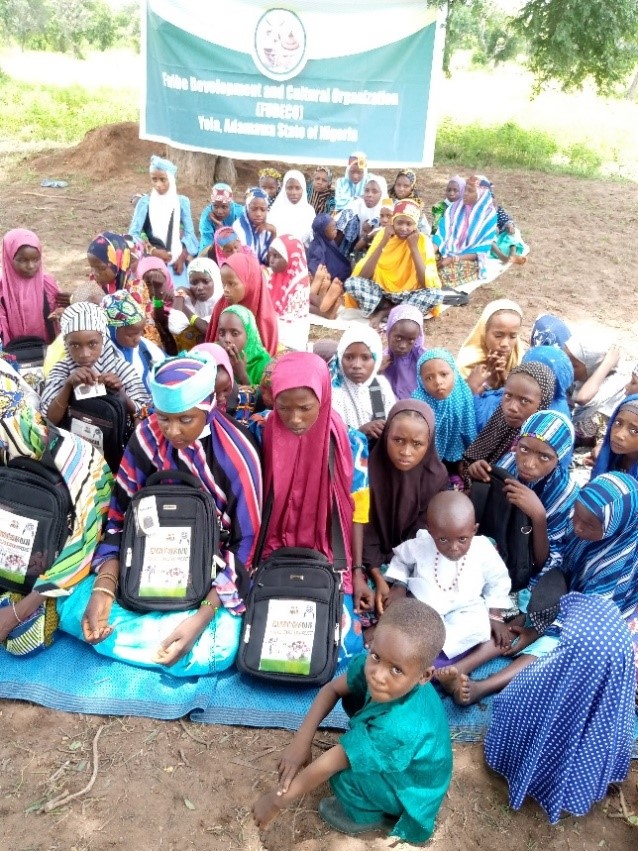
Muhammad Chubado Boggel, Local Education Secretary, said: “The Ardo Kaku community [have] embraced the school with two hands…The pastoral children can write their names, read a word, and sentences in English. These are children aged six to seven years who are supposed to be in Primary One (Grade One). This is a big achievement not only for Ardo Kaku but also for Fufore local government and the entire Adamawa state, because if these children graduate they will be future leaders with a positive mind set…I have seen it on their faces that they will support their children to go to school.”
Importantly, this initiative has also led to other pastoralist communities approaching FUDECO for help to start their own schools. The saying goes that educating a woman is educating society. This is really holding true in Ardo Kako community.
Follow FUDECO on Twitter @FUDECO_NG
